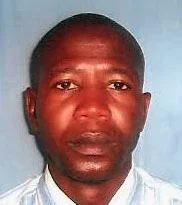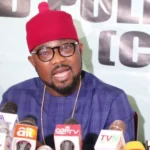Afolabi Gambari
President Bola Tinubu exported the Nigerian version of politics to Brazil on November 18 as the G-20 summit was held in the South American country. After greeting the “Excellencies Heads of State and Government” as well as “Ladies and Gentlemen” in his speech at the Rio de Janeiro hall of the summit a day after his arrival, he said the event “marks a significant milestone in our global efforts to eradicate hunger and poverty, and it also sends a powerful message of solidarity to vulnerable populations around the globe”, saying “this initiative offers a comprehensive statehouse-digital approach not only to addressing immediate needs but also tackling the structural causes of hunger and poverty”.
He regaled the audience with a bit a history that the lot of them scarcely knew: “When I took office in 2023, I unveiled an 8-point Agenda, with Priority 3 focusing on boosting agriculture to achieve food security through the development of commodity value chain and the provision of infrastructure support while Priority 6 focused on education, health and social investment as essential pillars of development.”
As President Tinubu rounded off his speech, he said: “By collaborating with international partners, Nigeria aims to leverage best practices, innovative solutions, and financial support to enhance its efforts to combat poverty and hunger.” He also emphasised: “The endorsement reinforces Nigeria’s role as a key player in global efforts to promote sustainable development and improve the quality of life for all its citizens.”
Back home, however, and some 17 months after the Tinubu administration came on board, it is not clear which agricultural policy it seeks to pursue. Nor is food security guaranteed yet. Nor even is the infrastructure supported in real discussion at any level. As for the “Priority 6” that Mr President said “focused on education, health and social investment as essential pillars of development”, that is at best a mirage – at least at the moment. Save for those who knew that the content of Tinubu’s speech was more political than an account of the “real situation”, others would have clapped hysterically, especially if they did not bother to fact-check if the situation “on the ground” here matched his saccharine offering.
Many of those in the Nigerian football sector often say they detest politics. Not even educating the lot that politics plays a crucial role in the survival or ruin of the football sector would encourage many of the stakeholders to mind politics. “Leave politics for the politicians” is a phrase that they have become so fond of it has since become an anthem for them. Yet, if there is anything that has brought football in Nigeria literally to its knees, it is politics. Indeed, the politics in Nigeria football has proved to be more high-wired and toxic than the main politics in the country which the football stakeholders purport to treat with a long pole.
Reality has put Nigeria at odds with regard to possibly missing out on two consecutive FIFA World Cup finals after missing out on the last edition in Qatar at the last hurdle. Call it aching reality, but it is reality all the same. After failing to learn any lesson from the 2022 fiasco, a country of over 200 million people, which prides itself as a “footballing nation”, now totters on committing the same mistake; this time rather inexplicably. There were ten games to play in the World Cup qualifying group with Nigeria a clear favourite to top the pack that comprises lightweights Lesotho, Zimbabwe, Rwanda and Benin Republic with only rising superpower South Africa to really contend with. But after four games against Lesotho, Zimbabwe, South Africa and Benin Republic – where there were 12 points to gross in, Nigeria has only managed 3 points through draws against Lesotho, Zimbabwe and South Africa while losing all 3 points to Benin Republic and now lies just above Zimbabwe in the log. For a team that has proved to be awful on away grounds in recent times, the Super Eagles are now condemned to beat South Africa, Lesotho and Rwanda on their home grounds to chalk up 9 points of the remaining 18 points at stake while assuming that the other 9 points available for them at home against Benin Republic, Rwanda and Zimbabwe would be swept easily. Even still, it would take an incurable optimist to give 18 points to the inconsistent Eagles.
Despite the foregoing grim scenario to which any honest Nigeria football stakeholder should admit, former Nigeria international and one-time Eagles’ coach, Sunday Oliseh, opted to play politics with the reality, perhaps for relevance, since he has been out of the limelight for a while. In an interview with a digital TV station, Oliseh, whose reign as Eagles’ gaffer was only a shade less combustible than his time as captain of the national team, said Nigeria is “at risk” of not attending the FIFA World Cup 2026 finals at a time when, interestingly, Africa’s slot would be 10, up from the current six. “It will be a disaster if Nigeria do not qualify,” he said. One would have thought it was a disaster that Nigeria did not qualify for the Qatar World Cup. Perhaps, Oliseh was short of the right word to use this time in his quest to be political with reality.







